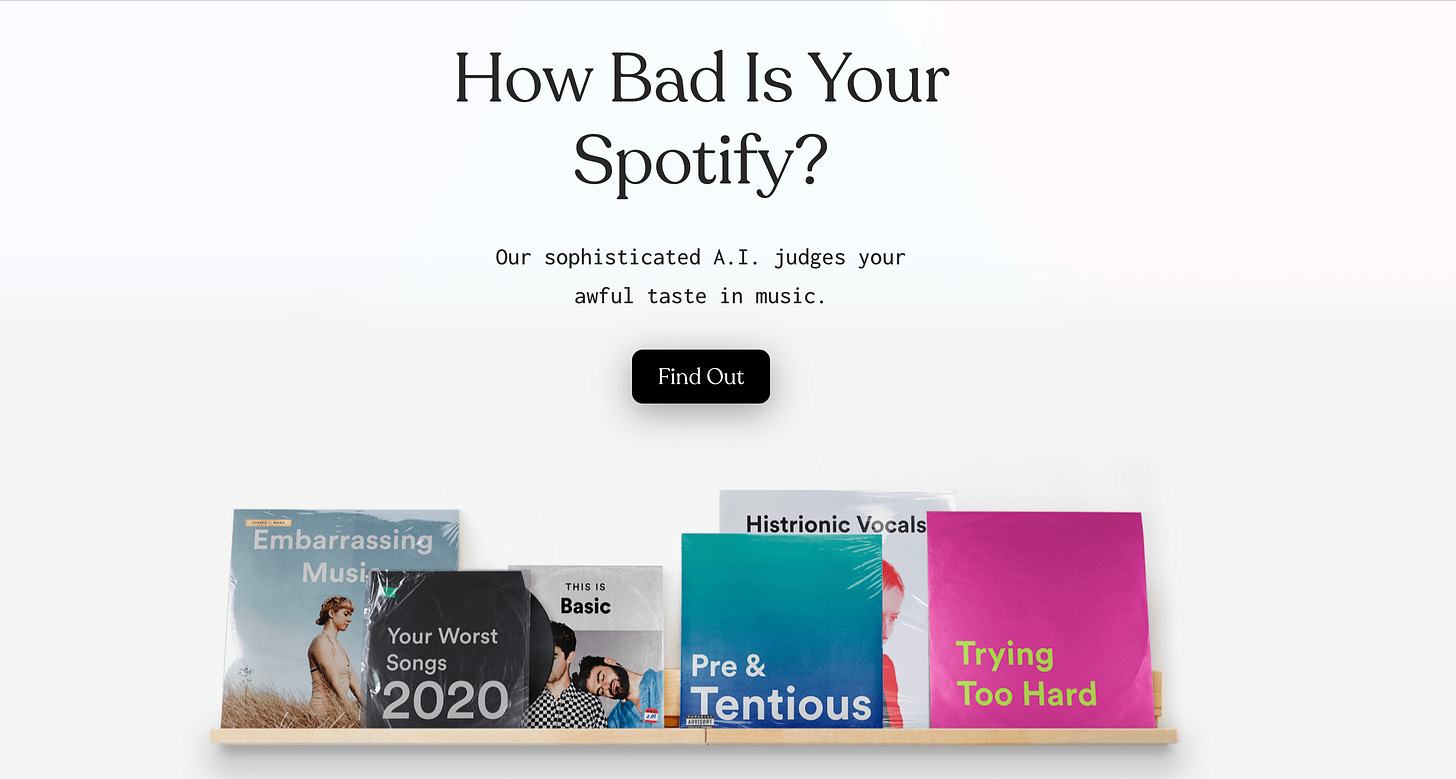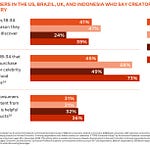Good Morning. NFL Wild Card weekend is in the books. Who do you have winning the Super Bowl this year? Let me know by replying to this email.
If you’re reading this but haven’t subscribed, what’s the hold up? Sign up below.
💵Investing in Creators
The internet is changing the way we learn. While often viewed as a complement to the traditional education system, it’s much more of a disruptor. Information is widely accessible, and more importantly, significantly cheaper than ever before. Add in sky-high tuition rates and you can see where I’m headed.
Although still a smart option for most individuals, it’s getting much harder to justify the price tag and life-altering debt that comes along with a college education.
Consider these facts:
Over the last 20 years, we’ve seen a 144% jump in average tuition and fees at private National Universities
Out-of-state tuition and fees at public National Universities have risen 165%, while in-state tuition and fees have shot up over 212%.
As of 2019, the average four year college student who takes out loans graduates with over $32,000 in debt.
Three million student borrowers have taken on over $100,000 in debt, with nearly 800,000 students of that total holding student loan debt greater than $200,000.
The worst part is there’s no ceiling in sight. The average university tuition increases 8% every year compared to an average inflation rate of 2%. At this rate, the cost of college doubles every nine years.
Part of the beauty of college is learning about yourself and finding what you’re good at. Many students enter college a blank canvas, hoping to use this period of experimentation and connection to paint the ground strokes of their adulthood. Others already have sketched out where they’re headed. For those with a predetermined, specialized or trade skill in mind (think software engineering or plumbing) ISA’s can be a perfect fit and may even mean forgoing college altogether.
An income share agreement, or ISA, offers funding for schooling that you repay based on your future salary. While not new, this model has most recently been popularized by the Lambda School, a computer science bootcamp that offers education at no upfront cost in exchange for 17% of your post-Lambda School salary for 24 months, but only once you're making more than $50,000 per year (or the equivalent of $4,166.66 per month) with a maximum payment cap of $30,000. This salary minimum incentivizes Lambda to invest time and effort in the education and job placement of their students.
There’s no interest, no credit required, and in many cases these payments can be deferred in the event of emergency, medical leave, or other financial burdens. Currently, ISAs are unregulated which means that payment terms and other details will vary. Like student aid, there are good and bad loans. The same applies here.
Along with major institutions and specialty schools, another avenue has begun to open. ISA’s for individuals, specifically creators. The passion economy is in full force. With more people than ever trying to build careers on the internet, many need funding to jump-start their ambitious journeys. Within the next year or two, there will be a flood of schools offering money, education, and resources to aspiring creators in exchange for a percentage of future revenue.
While it sounds good in theory, I struggle with this idea (at least in the Lambda School format) for a few reasons:
Creator salaries range all over the map and the failure rate is much higher. Similar to VC, you need a few big wins to cover all of the losses and then some.
Skilled coders, artists, and trade workers can be objectively great in their craft. People can learn to produce and edit high-quality content and market themselves online, but that doesn’t mean they will be able to successfully find an audience or carve out a niche. Earnings in this space are largely affected by power law (the majority of earnings are claimed by only a few creators.)
With Lambda school, many students have prior coding experience and are looking to bolster their skills. With these creator schools, creators who have already shown promise can easily be scouted by top talent agencies like CAA and UTA both of which are actively building out creator arms.
With that being said, there are a handful of companies already investing in the future earnings of Creators:
Creator School - Providing education for podcasters, YouTubers, content creators and more in exchange for revenues through ISAs.
Spotter - Providing creators with upfront cash for future videos in exchange for the rights to claim creators’ existing content libraries.
Podfund - Provide upfront capital to podcasters and audio-driven media companies via traditional equity, convertible notes, and SAFEs.
Bottom Line: With tuition prices showing no sign of slowing down, college may no longer make financial sense for certain crowds. A potential alternative are schools with ISA-backed tuition teaching specialized and trade skills such as coding, plumbing, and content creation.
Learned something new? If so, pass it along to a curious friend!
🎙️Crashing Up Podcast
Ryan Sneddon is the founder of Naptown Scoop, an email first local media company covering the city of Annapolis, Maryland. He currently sends all the happenings and important news three times a week.
With thousands of traditional local media outlets dying out and mainstream media becoming increasingly political for ratings, it’s never been a better time to start a local digital media company.
To hear Ryan and I chat about the rise of digital first local media, community building, and newsletter growth tips, click the audio player at the top of this email.
If you want to hear more from Ryan you can follow him on Twitter or subscribe to his personal newsletter.
🧰Tool of the Week
This week’s tool isn’t going to save you time or make you more productive. Nope, instead it’s going to use AI to absolutely tear apart your music preferences.
How Bad is Your Spotify? scans your Spotify listening history and provides you with a hilarious in-depth breakdown of your music taste.
The overall consensus I received: Your spotify was depressive-canadian-trap-house-tay-tay-fangirl bad.
Honestly, very on brand.
Give it a try yourself and let me know what you get.
Enjoyed today’s newsletter? Let me know by clicking one of the links below.
If you’re new here and want to catch up on some old editions, here are a couple of my favorites: Alone Together and Playing the Long Game You can also follow me on Twitter or check out randymginsburg.com for more writing.
Thanks for reading,
Randy















Share this post